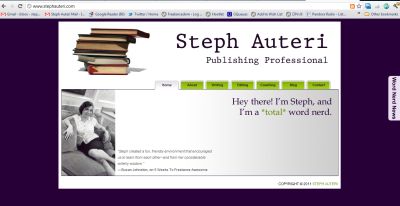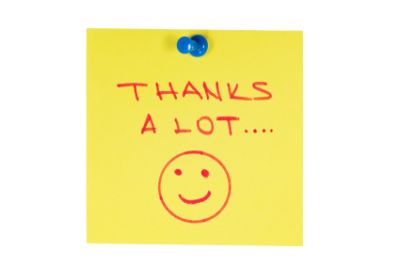 I learned early on that — when it came to freelance writing — it was important to bounce back quickly from rejection, keep up the momentum, and flip that pitch.
I learned early on that — when it came to freelance writing — it was important to bounce back quickly from rejection, keep up the momentum, and flip that pitch.
Because of that early lesson, I’ve never felt too much anxiety when pressing “send” on my query letters and, upon receiving rejections, I’ve typically only felt the barest twinge of disappointment before turning to the next publication on my pitch list. After all, rejection is a reality of the freelance writing life, and not everyone is going to fall all over themselves to publish my work. In fact, despite my being a total genius (obvs), I’m pretty sure at least some of my ideas have been pretty weak.
So my mental reaction when I received my first-ever rejections from my first-ever literary agent queries sort of caught me by surprise.
I spent two hours sending out my first four query letters on the Monday before Thanksgiving. By that point, I had already imagined my book as a done deal. I’d envisioned the book party / speed networking event that would take place at my favorite local cafe. I’d mentally run through the readings that would take place at Babeland and Happy Ending and KGB Bar. I’d considered the other things I would do to promote my book. The local library I’d do a Q&A at. The excerpt I’d send along to Real Simple. The blog tour I’d singlehandedly mastermind (and which my publicist would love me for).
This is all very embarrassing to admit. But I figured that imagining my book as a done deal would help it become a reality… would in fact help it manifest, à la The Secret.
One of the agents I emailed (my first choice, actually) responded within 15 minutes. He wanted to see my full proposal. I nearly had a heart attack, but I forced myself to chill the eff out and then sent along what I had, feeling cautiously hopeful. Somehow, I managed to make it through the week (including Thanksgiving) without going completely crazy from anticipation.
The following Monday, I received his rejection and, later that day, another one.
They were lovely rejections. They included words like “talented” and “engaging.” I felt that familiar twinge of disappointment, but I still felt hopeful. Their letters had been rejections, but they had also been personal, complimentary, and constructive. I filed their critiques in the back of  my mind for use in future revisions, and set about waiting for responses from the other agents.
I spent the next three days being completely unproductive. I wasn’t sure why. It finally occurred to me that I was depressed. What the what!? But then I realized what was bothering me. Those two rejections had forced me to consider the difficult possibility that my book might not happen.
Noooooooooo!
I gave up on work and retreated to the sweet, sweet comfort of my pillow-top mattress, plus five layers of blankets and cats. I tried not to think about the readings and book parties that would never happen. I slept for two hours. I allowed myself to mourn.
This morning, I found myself eating Cheetos at 8:30 a.m. and decided it was time to snap the hell out of it. I started putting together the December edition of Word Nerd News. I started writing this blog post. I looked at my agent spreadsheet and made plans for sending out my next wave of query letters. I brainstormed my next steps for drumming up new work.
Clients often ask about my success rate with query letters and LOIs. I tell them my success rate is much better than it was when I started. Which makes sense. After all, my portfolio is stronger these days, my network is larger, and my writing has only improved. But I also tell them that rejection is still a reality of the freelance writing life, and that it always will be. One can’t succeed without accepting that, and working through it.
After all, rejection is not the same as failure.
How do you react to rejection? Do you, too, have weird daydreams about your unpublished book? And have you ever sunk so low as to eat Cheetos at 8:30 a.m.? Spill it.
Related: Flip That Pitch, How To Increase Your Chances of Landing That Book Deal


 The other day, I was the only student to show up for lunchtime yoga. “You have three options,” my instructor told me. “A. We can do a restorative yoga class. B. I can kick your ass with a really intense class. C. We can blow this joint and go out for drinks.”
The other day, I was the only student to show up for lunchtime yoga. “You have three options,” my instructor told me. “A. We can do a restorative yoga class. B. I can kick your ass with a really intense class. C. We can blow this joint and go out for drinks.”





